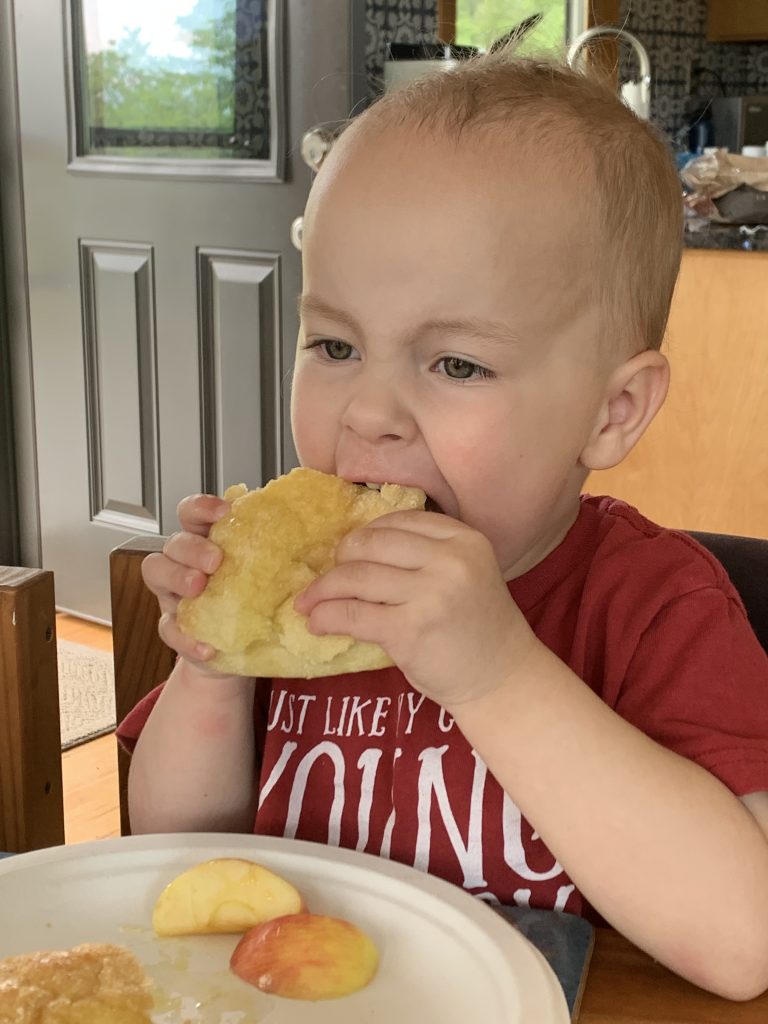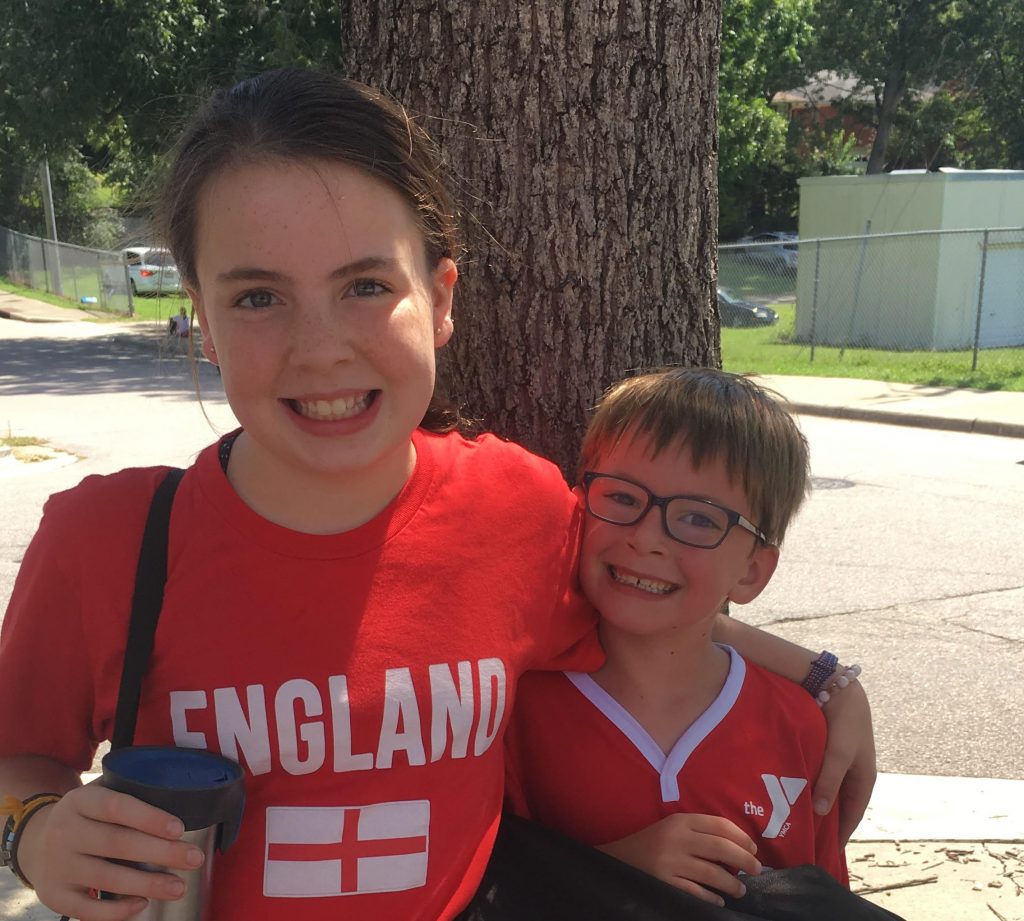This week, WW - formerly Weight Watchers, announced the release of a free weight-loss app for children ages 8-17 names Kurbo. The announcement made me angry and heartbroken for another generation of children being handed the rules of dieting for the benefit of a company's profit. As I’ve spoken out about this announcement, it’s become clear that not everyone understands the reaction to this announcement by eating disorder professionals, parents, and eating disorders and diet-culture survivors.
Diet culture affects every part of our culture, including childhood development, parenting

I’ve received many questions this week about the concerns over the weight-loss app and I'm going to attempt to address them here. They are all valid questions, given our culture. The concerns about this app are contrary to the generally accepted opinion about weight and health in our culture. However, the focus on weight throughout all parts of our culture is increasing eating disorder rates, leading to weight cycling (and the many health problems associated with weight cycling), and causing emotional harm to adults and children. It’s time for a paradigm shift.
Harm? It’s an app to help children be healthy.
I have had countless clients whose eating disorder started when they were taken to a Weight Watchers meeting as a child or when a parent or trusted adult told them they needed to lose weight. For many, a finite incident like these set them up for a lifetime of emotional and physical harm.
When a child is told they need to lose weight, they are being told that they are flawed and need to change their body in order to be accepted or safe. This message cuts to the core of one’s self-worth. Handing a child a weight loss app or telling a child they need to go on a diet tells them they can’t trust their own appetites, desires, and internal signals. We tell them they can’t trust themselves. To me, this very notion puts our children in a vulnerable place for all areas of their life. They need to be supported in knowing, more than anything, that they are okay, as they are, and have wisdom and strength within them.

Restrictive diets cause physical harm that often lasts throughout life. Diets set children up for weight cycling and eating disorders. Research shows that adolescents that diet are at significantly increased risk of disordered eating behaviors at 5-year follow up and predicts weight gain (1). Furthermore, restrictive feeding practices have been shown to predict eating in the absence of hunger and unexpected weight gain in children (2).
Isn’t teaching kids healthy eating important?
Yes! It’s extremely important for children to learn about self care and nutrition. However, teaching kids about nutrition doesn’t mean that there has to be a weight or weight loss element. Nutrition education needs to be free of a weight focus and taught in a developmentally appropriate way.
What do we want our children to learn about nutrition and food? When I think about nutrition education, I think about children learning or being supported in:
- Feeling relaxed and flexible around food
- Knowing where our food comes from
- Feeding themselves, as an older teen or adult, in a way that is balanced, nourishing, and satisfying overall (self-care)
- Having basic food preparation skills
- Eating well and listening to their bodies is a way we take care of ourselves
- Possessing an appreciation for the wisdom and diversity of bodies

Like so many topics of childhood development, nutrition and healthy eating are best taught to children through modeling. Modeling the importance of food can be done day in and day out. We model for our children when we have family meals. We model healthy eating when we take the time to stop what we are doing, turn off the screens, and eat a snack. We don’t have to tell children “don’t eat too many cookies” or "cookies are a sometimes food." Children learn that through the frequency of how often we offer desserts versus other foods throughout their day. We model through cooking simple meals and getting children in the kitchen to help with cooking tasks. Research shows that parent’s intuitive eating predicts their children’s ability to self regulate (3). Working on our own eating behaviors is the best way we can support our children’s healthy relationship with food.
Isn’t teaching kids to eat less junk food a good thing?
The app called Kurbo uses the “

What about children whose families don’t model healthy eating?
I think this is an important question. There are many families that family meals can't happen frequently. Modeling healthy eating isn’t a reality for many families for whom juggling several jobs, working long hours and having enough money and food are the main concerns. I don’t have a comprehensive answer to this question. However, a weight loss app for children is not
If we are truly concerned about our nation's children's health, we need to be focusing on environmental level changes. We need to be working collectively, as a society, to eliminate food deserts (areas where the population doesn’t have access to fresh foods), reduce economic disparities, decrease and properly treating childhood trauma, change our country’s food policies and nutrition curriculum in schools, and make many neighborhoods safer to play in.
Our Children Deserve Better
Although all of these questions are valid and come from a place of concern for children, I hope the concerns raised about WW's announcement over the last week has brought to the forefront the harm our society’s focus on weight is causing. I believe that this free weight-loss app for children is at the same level of risk as marketing cigarettes to children. If we marketed tobacco to children, not all children would smoke them. Among the children that began smoking, not all of them would become addicted. However, for the children who would be set up for a lifetime of addiction and health problems, we would never endorse marketing cigarettes to children. As a society, we need to stop the marketing of diets to children and telling children their bodies are flawed. Our children deserve to grow up knowing they are okay and can trust themselves and their bodies. Our children deserve better.

- Neumark-Sztainer D, Wall M, Eisenberg ME, Story M, Hannan PJ. Overweight status and weight control behaviors in adolescents: longitudinal and secular trends from 1999 to 2004. Prev Med. 2006 Jul;43(1):52-9. Epub 2006 May 11.
- Birch LL, Davison KK, Fisher JO. Learning to
over- eat : Maternal use of restrictive practices promotes girls’ eating in the absence of hunger. Am J Clin Nutr. 2003;78:215-220. - Tylka TL, Lumeng JC, Eneli IU. (2015). Maternal intuitive eating as a moderator of the association between concern about child weight and restrictive child feeding.Appetite. Dec 1;95:158-65.
- Becker, C. Middlemass, K. Taylor, B. Johnson, C. Gomez, F.Food insecurity and eating disorder pathology. Int J Eat Disord. 9. 1098-108X

Leave a Reply